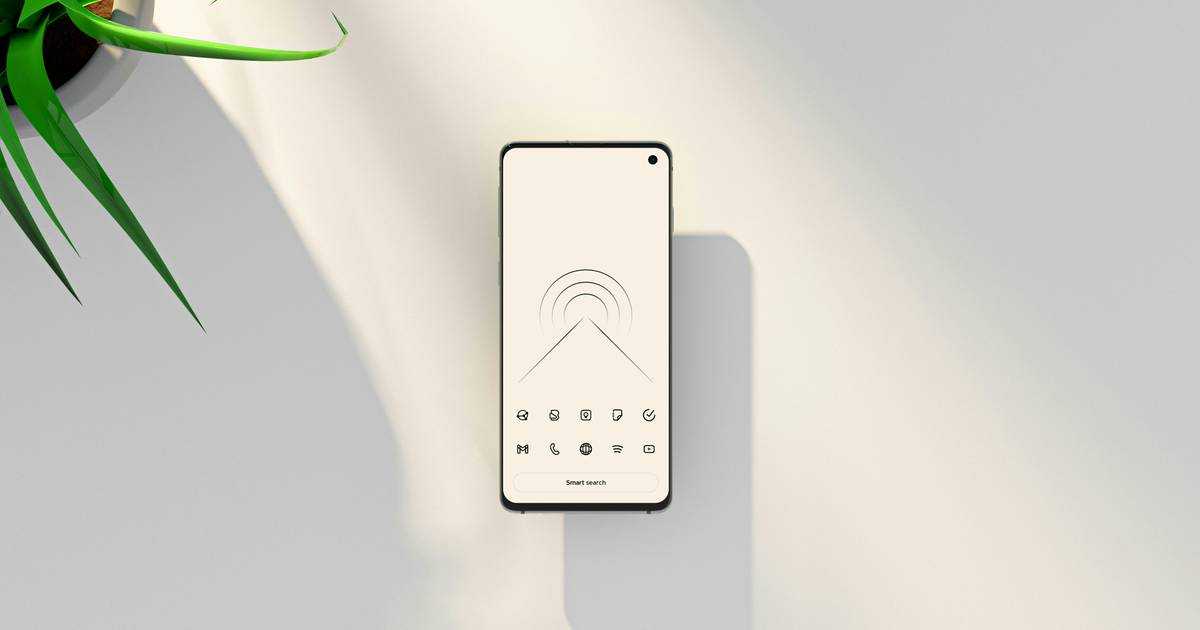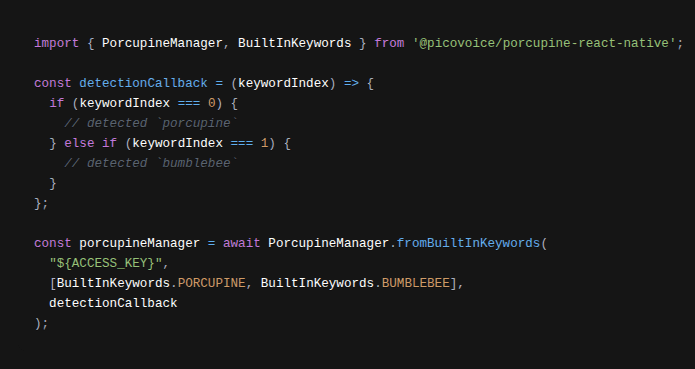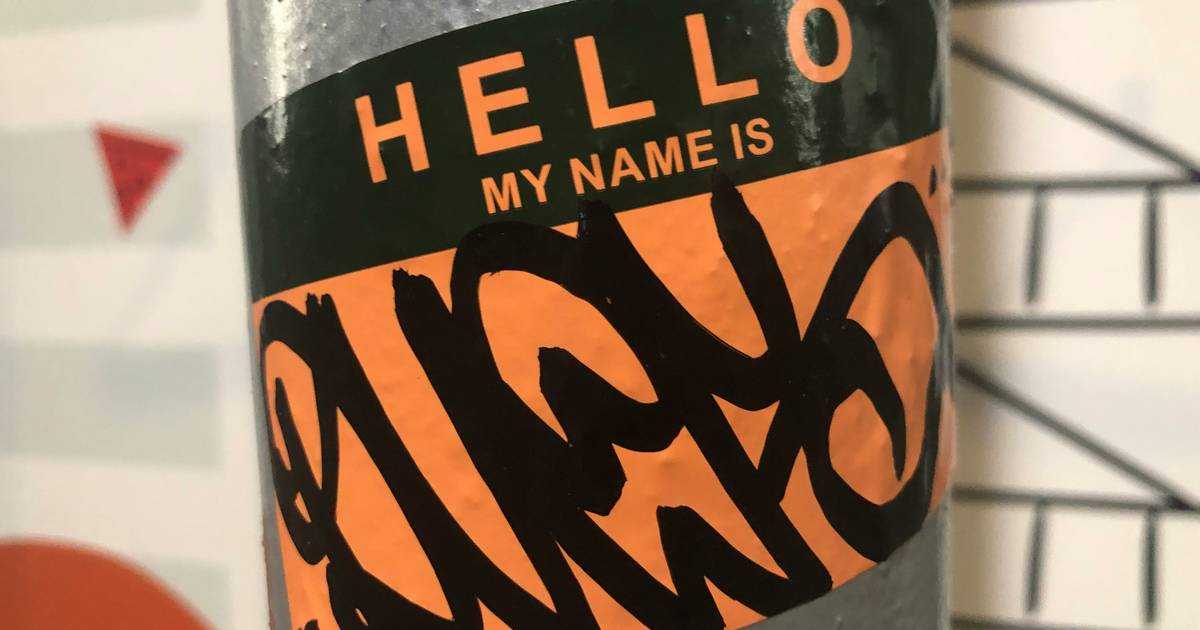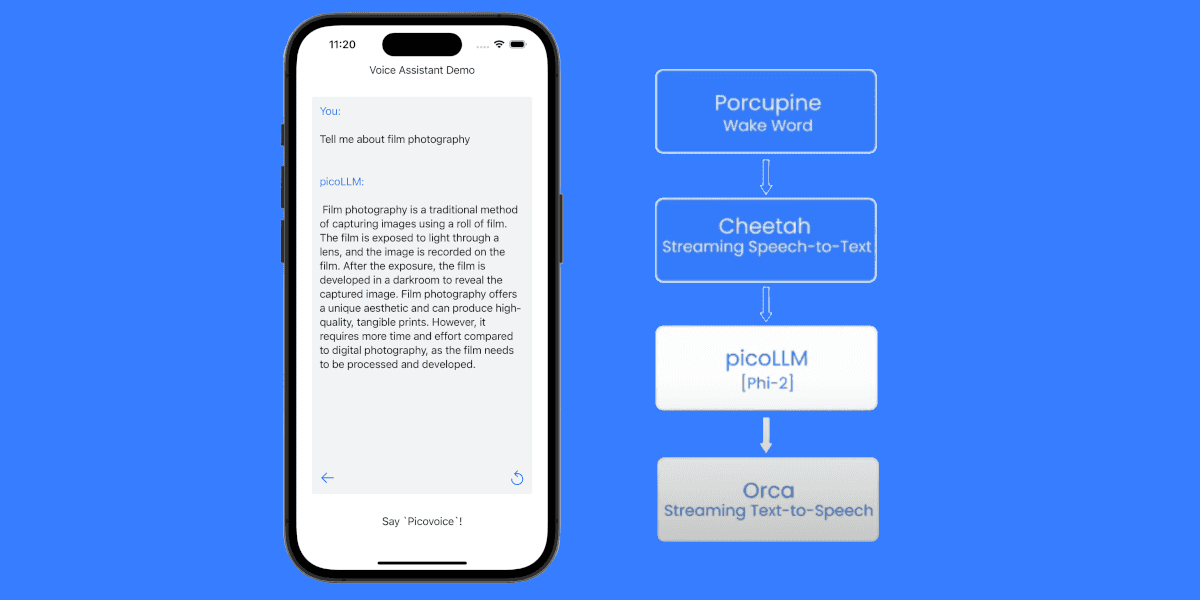Keyword Spotting (KWS), Word Spotting or Keyword Recognition is the first defined problem in speech recognition. Keyword spotting detects a given set of words or phrases in audio streams. Thus, it is also known as Recognizer, Keyword Recognizer or Keyword Spotter. Recent advances in deep learning have made KWS a hot topic in speech recognition. Deep learning has improved both the accuracy and efficiency of AI models. Hence, KWS has become available even for small electronic devices or web browsers.
The best analogy for KWS could be the humans' reaction to their names. Although we do not understand every conversation in the environment, we easily spot our names or other important words when we hear them.
Keyword spotting in voice AI enables keyword recognition and always listening commands, including wake-up word detection. For example, Picovoice's Porcupine uses deep learning-powered keyword spotting.
Keyword Recognition is used to monitor and analyze conversations. In the United States, the National Security Agency has used keyword recognition since the early 2000s for suspicious keywords. Another use of keyword recognition is monitoring games. While one does not need to transcribe the whole conversation among players, it's important to detect profanity and hate speech to improve user experience. Snap has a feature called keyword detection. It adds effects when certain keywords are captured.
Always-Listening Commands initiate actions with no further input. Wake words are the most known always-listening commands. They activate dormant software to listen to follow-on commands. When simple commands such as “Volume Up” and “Play Next” are used standalone, in other words not after a wake word, they are also called always listening commands. Always-listening commands save time and improve user experience in relevant use cases.
Wake-up Word Detection is also known as Hotword Recognition, Trigger Word Detection, Wake-Up Word Recognition, or Wake Word Detection. A hotword, trigger word, wake-up word, or wake word is a custom special phrase that activates dormant software. The most famous wake-up words are Alexa, Hey Siri, and OK Google. Picovoice Console enables enterprises to build their wake-up words and more. Don't forget to read our tips on choosing a wake-up word.
Keyword spotting is also used in image recognition. It deals with retrieving the most relevant content in a collection of visuals, mostly scanned documents based on a text string or a word image.
Picovoice Consulting team consists of builders of Porcupine Wake Word and helps companies select and implement keyword models for their use cases.
Consult an Expert






